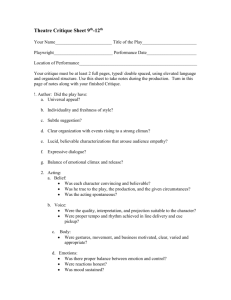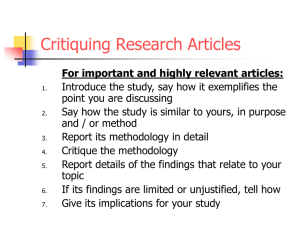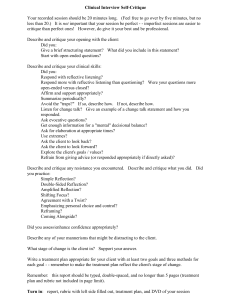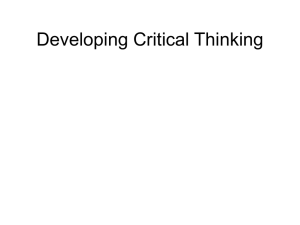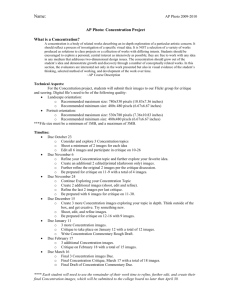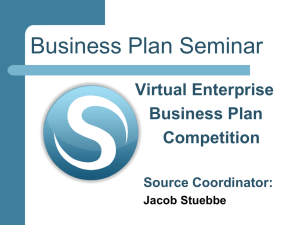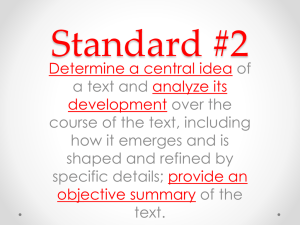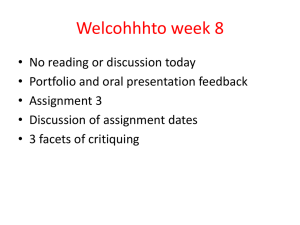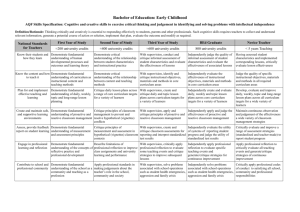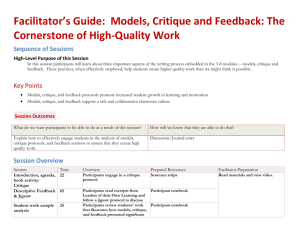RESEARCH PAPER TOPICS – BA 453 HRM
advertisement
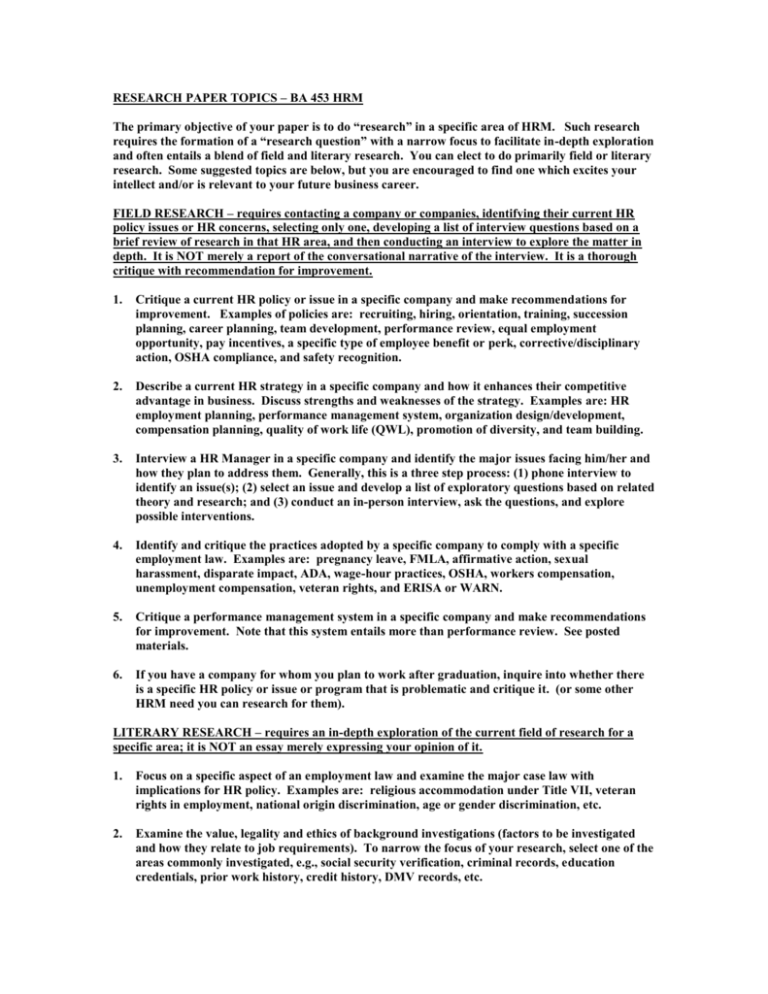
RESEARCH PAPER TOPICS – BA 453 HRM The primary objective of your paper is to do “research” in a specific area of HRM. Such research requires the formation of a “research question” with a narrow focus to facilitate in-depth exploration and often entails a blend of field and literary research. You can elect to do primarily field or literary research. Some suggested topics are below, but you are encouraged to find one which excites your intellect and/or is relevant to your future business career. FIELD RESEARCH – requires contacting a company or companies, identifying their current HR policy issues or HR concerns, selecting only one, developing a list of interview questions based on a brief review of research in that HR area, and then conducting an interview to explore the matter in depth. It is NOT merely a report of the conversational narrative of the interview. It is a thorough critique with recommendation for improvement. 1. Critique a current HR policy or issue in a specific company and make recommendations for improvement. Examples of policies are: recruiting, hiring, orientation, training, succession planning, career planning, team development, performance review, equal employment opportunity, pay incentives, a specific type of employee benefit or perk, corrective/disciplinary action, OSHA compliance, and safety recognition. 2. Describe a current HR strategy in a specific company and how it enhances their competitive advantage in business. Discuss strengths and weaknesses of the strategy. Examples are: HR employment planning, performance management system, organization design/development, compensation planning, quality of work life (QWL), promotion of diversity, and team building. 3. Interview a HR Manager in a specific company and identify the major issues facing him/her and how they plan to address them. Generally, this is a three step process: (1) phone interview to identify an issue(s); (2) select an issue and develop a list of exploratory questions based on related theory and research; and (3) conduct an in-person interview, ask the questions, and explore possible interventions. 4. Identify and critique the practices adopted by a specific company to comply with a specific employment law. Examples are: pregnancy leave, FMLA, affirmative action, sexual harassment, disparate impact, ADA, wage-hour practices, OSHA, workers compensation, unemployment compensation, veteran rights, and ERISA or WARN. 5. Critique a performance management system in a specific company and make recommendations for improvement. Note that this system entails more than performance review. See posted materials. 6. If you have a company for whom you plan to work after graduation, inquire into whether there is a specific HR policy or issue or program that is problematic and critique it. (or some other HRM need you can research for them). LITERARY RESEARCH – requires an in-depth exploration of the current field of research for a specific area; it is NOT an essay merely expressing your opinion of it. 1. Focus on a specific aspect of an employment law and examine the major case law with implications for HR policy. Examples are: religious accommodation under Title VII, veteran rights in employment, national origin discrimination, age or gender discrimination, etc. 2. Examine the value, legality and ethics of background investigations (factors to be investigated and how they relate to job requirements). To narrow the focus of your research, select one of the areas commonly investigated, e.g., social security verification, criminal records, education credentials, prior work history, credit history, DMV records, etc. 3. Examine a specific stream of employment litigation and its implications for HR policy and pract1ce. 4. Examine one key macro HR concept such as “Organization Design” or “Workforce Planning” or “Compensation Planning” and its link to Strategic Planning and HR policy development. 5. Critique a specific type of employment recruitment method based on available research. 6. Critique a specific type of employment selection method, e.g., personality testing, cognitive ability testing, integrity testing, situational interviews, assessment centers, etc. 7. Critique a specific type of Performance Evaluation method and its fit in an overall performance management system. Include an example of this method used currently in a company. 8. Critique a specific type of job analysis method and its implications for HR policy. 9. Examine the research underlying the various types of judgment bias in evaluation (employment interviewing, organization assessment, performance reviews, complaint investigations, etc.). 10. Identify key aspects of the research surrounding performance measurement or more in-depth review of the research surrounding a specific type of performance review method. 11. Critique an innovative recruiting method (identify companies using it and their experience). 12. Critique an innovative employment screening method (e.g., personality testing) and its implications for HR policy. Note of caution: Solid research takes time. Select a topic which is of interest to you or one that you may clearly have an opportunity to use in your first job after college. Email me your research topic and method asap so that if a dialogue is necessary to clarify the final topic, we will have time to exchange information. Topic declaration, 4/16, and papers are due at the end of class on 4/30.Samples of “A” graded papers from previous classes are available in my office for review.

